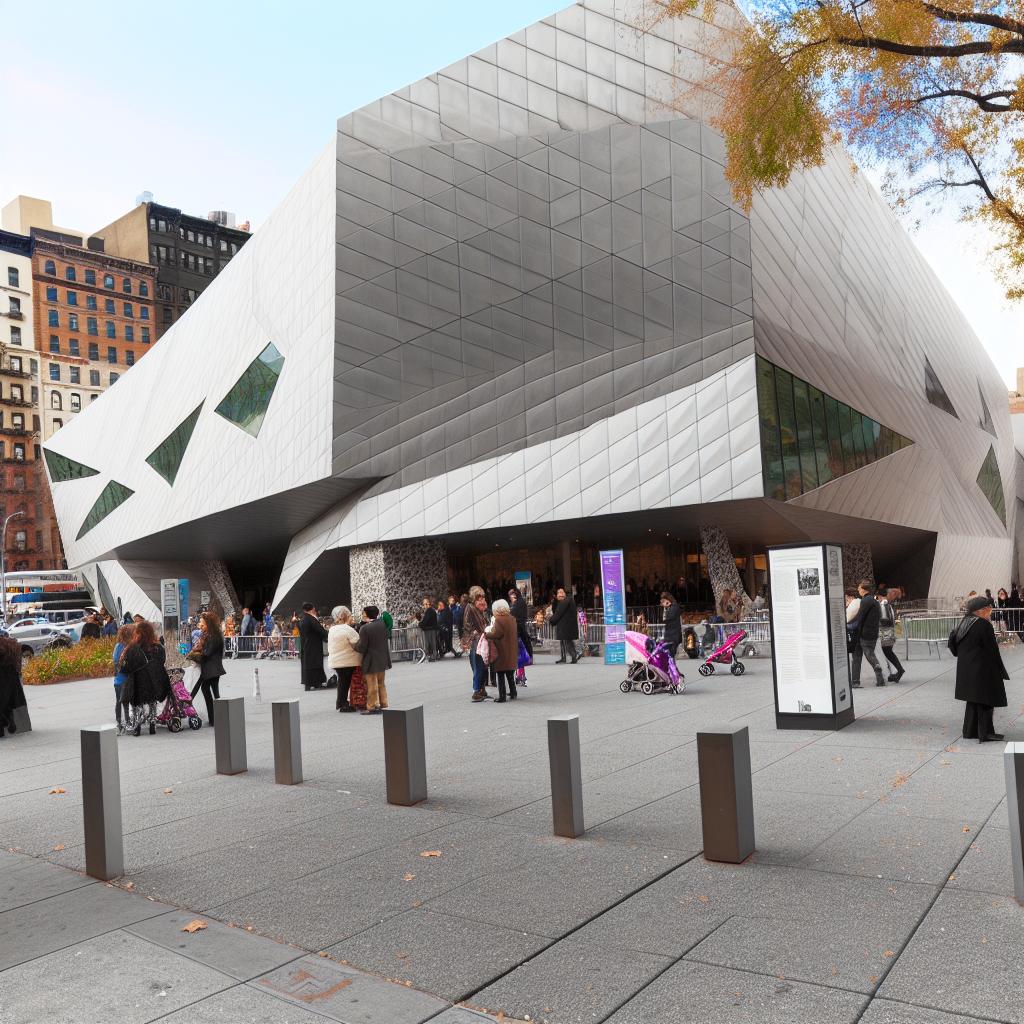Introduction
The Jewish Museum and Tolerance Center stands as a prominent cultural and educational institution situated in Moscow, Russia. This center offers a thorough exploration of Jewish history and culture with an emphasis on fostering tolerance and understanding across diverse communities. It serves as a pivotal site for both education and dialogue, enriching visitors with extensive knowledge and encouraging mutual respect.
History and Establishment
Opened in November 2012, the Jewish Museum and Tolerance Center was created to fulfill a critical need for institutions that promote cultural understanding and historical awareness. It is housed in the Bakhmetyevsky Bus Garage, a landmark building designed by the esteemed constructivist architect Konstantin Melnikov. This location itself holds significant historical and architectural importance, enhancing the museum’s role as a cultural beacon.
Exhibitions and Displays
The museum showcases a diverse array of permanent and temporary exhibitions, leveraging modern technology to effectively engage and educate its visitors. The comprehensive permanent collection offers a detailed narrative of Jewish history from the Biblical era to contemporary times, with particular attention to Jewish life in Russia. It incorporates varied media elements such as films, interactive displays, and personal narratives to deliver an immersive educational experience that captivates diverse audiences.
Permanent Exhibition
The permanent exhibition is crafted to be both informative and interactive, aiming to cultivate a profound understanding of Jewish culture, religion, and contributions to global society. It encompasses various thematic sections, each addressing distinct historical periods and cultural aspects. This exhibition serves as a cornerstone in the museum’s mission to educate and inspire, offering a holistic overview of Jewish heritage and achievements.
Special Exhibitions and Events
Beyond its permanent exhibits, the museum hosts a range of special exhibitions and events. These are regularly updated to reflect current issues and celebrate cultural milestones. The collaborative nature of these presentations often involves partnerships with international cultural institutions, enriching the museum’s offerings and expanding its global reach.
Educational Initiatives
Education is a fundamental component of the museum’s mission. It runs several educational programs intended for students, educators, and the general public. The museum organizes workshops, seminars, and lectures to foster understanding and dialogue on topics related to tolerance, diversity, and history.
Tolerance Center
A central feature of the museum is the Tolerance Center, which acts as an educational hub promoting values of tolerance, respect, and understanding among various cultures and religions. The center emphasizes interactive and discussion-based learning, catering to a broad audience and encouraging positive inter-cultural dialogues.
Learning Programs
The Tolerance Center’s programs are meticulously designed to educate and actively engage participants in meaningful dialogue. By employing interactive scenarios and advanced multimedia tools, these programs aim to deepen understanding and inspire empathy towards diverse cultural perspectives. This approach ensures that participants leave with a greater appreciation for the world’s rich cultural tapestry.
Collaborative Efforts
The Center maximizes its educational reach by partnering with local and international organizations. These collaborations often result in joint events and projects that significantly contribute to cultural awareness and social cohesion. Through these joint efforts, the museum expands its impact, shaping a more informed and united society.
Architecture and Design
The museum’s location in the Bakhmetyevsky Bus Garage is an architectural marvel in itself, exemplifying the constructivist style that flourished in early 20th-century Russia. The adaptive reuse of this space merges historical architecture with modern design elements, providing an apt environment for the museum’s exhibitions and activities.
Architectural Significance
Designed in the 1920s, the Bakhmetyevsky Bus Garage is a testament to the innovative aesthetics of constructivism. The garage’s design features geometric forms and functionalism, characteristics which have been preserved and highlighted in the museum’s adaptation. This preservation honors the building’s history while allowing it to serve a new purpose as a cultural venue.
Modern Adaptation
Transforming the garage into a modern museum required a careful balance between conserving historical elements and integrating new technologies to support contemporary museum needs. The resulting design is both functional and visually harmonious, creating a space that resonates with the museum’s mission in the 21st century.
Visitor Information
The Jewish Museum and Tolerance Center welcomes visitors throughout the week, offering specific visiting hours and admission fees which can be found on their official website. Guided tours are available in multiple languages, providing enriching insights into the exhibitions and the overall mission of the museum. This accessibility ensures a broad audience can engage with and benefit from the museum’s offerings.
To discover more about the latest exhibitions, events, and educational programs at the Jewish Museum and Tolerance Center, one can access their website. Here, interested individuals can explore the various opportunities for learning and involvement, fostering a deeper connection with Jewish culture and heritage.

